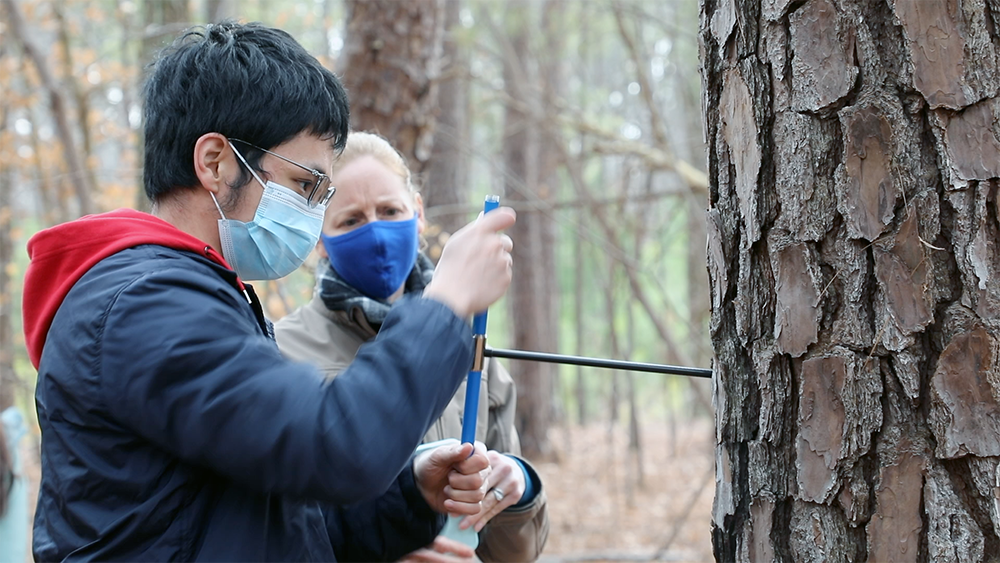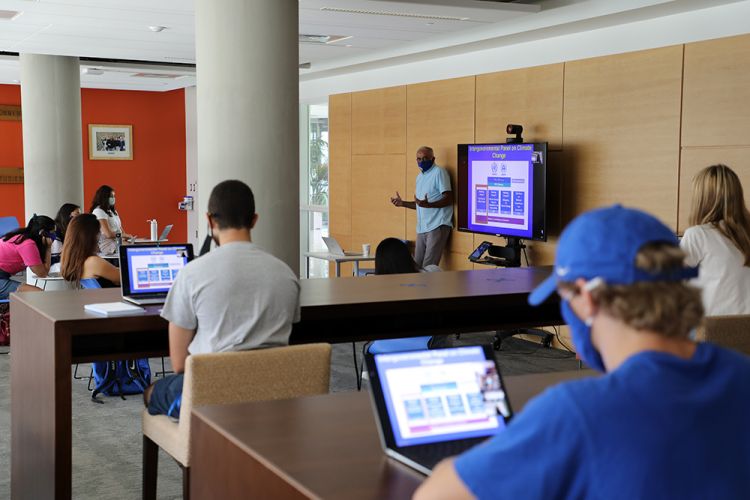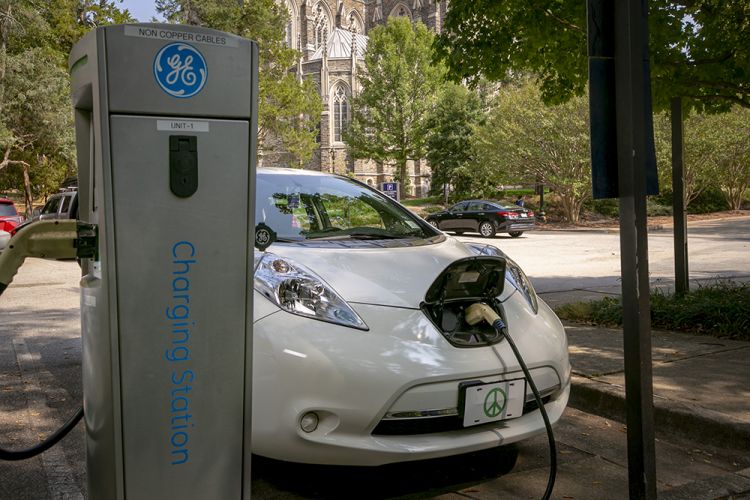Rising to the Moment
Duke’s climate community takes on big challenges

While news cycles lurch from floods to drought and from ice storms to wildfires, climate leaders at the university are looking towards the silver lining – a reason to discard practices that haven’t served society well and find a better way forward.
“What we are witnessing is really the birth of a new economy, and like all births and transitions, it’s going to be painful but also hopeful,” said Toddi Steelman, dean of the Nicholas School of the Environment, at a recent event sponsored by Duke Alumni Lifelong Learning.
“And that's what we have to address—how do we, as one of the premier universities in the world, rise to the occasion that this moment now demands from us?” Steelman added.
 In schools and departments across the university, Duke scholars explore climate change dynamics through the physical and biological sciences, examine the public health effects of climate change, find new policy approaches to mitigate climate risks, design new materials needed for clean energy sources and work to understand the deeper meaning of climate change’s fundamental causes and societal consequences. The university is also connecting with communities to gain insights that will help ensure the climate solutions of the future are just and equitable.
In schools and departments across the university, Duke scholars explore climate change dynamics through the physical and biological sciences, examine the public health effects of climate change, find new policy approaches to mitigate climate risks, design new materials needed for clean energy sources and work to understand the deeper meaning of climate change’s fundamental causes and societal consequences. The university is also connecting with communities to gain insights that will help ensure the climate solutions of the future are just and equitable.
“Duke is not new to the game when it comes to climate change and sustainability,” said Brian Murray, director of the newly merged Nicholas Institute for Environmental Policy Solutions and Duke University Energy Initiative. “And we do this in a very interdisciplinary way, going beyond discovery to solutions and beyond the campus to engage directly with those whose decisions matter.”
Among these ambitious climate goals is the campus pledge to become carbon-neutral by 2024. Even while the university has continued to grow, Duke’s total emissions have decreased by 49 percent from a combination of discontinuing the use of coal on campus, increasing building and utility plant efficiency and reducing travel since the baseline was set in 2007.
 Other new operational efforts stem from Duke’s expanding climate goals, said Duke Sustainability Director Tavey Capps. These plans include exploring new sustainable purchasing goals that reflect justice, equity, diversity and inclusion. Duke is also developing a sustainable vehicle fleet and an electric vehicle infrastructure plan.
Other new operational efforts stem from Duke’s expanding climate goals, said Duke Sustainability Director Tavey Capps. These plans include exploring new sustainable purchasing goals that reflect justice, equity, diversity and inclusion. Duke is also developing a sustainable vehicle fleet and an electric vehicle infrastructure plan.
“This is without question an exciting time,” said Duke University President Vincent Price at the alumni event. “And as we think about harnessing Duke's unique strengths to address the world's most pressing challenges, there's perhaps no challenge more pressing or frankly existential than climate change.”
To help meet the challenge, several working groups across campus have created additional ways for faculty, staff and students to pursue climate research and scholarship. As the work continues, more opportunities will be announced.
- University-Wide Collaboration Grants on Climate Change – Small grants (with prospects of additional funding) for faculty and staff who are interested in collaborating with colleagues—either within or across disciplines—around a shared intellectual interest that targets a climate-related challenge. Priority areas include energy transformation, climate resilience, natural climate solutions, climate and data, and climate and social justice.
- Climate+ projects – Five teams of undergraduates and master’s students will engage in climate-related, data-driven research projects during the summer. Topics include electricity consumption, wetland carbon emissions, climate change’s impacts on river and ocean ecosystems, and the use of remote sensing data to inform climate strategies.
- Data Expeditions: Climate and Health – Research funding is available for transdisciplinary teams exploring the health impacts of climate change. Awards are anticipated to be $300,000 to $500,000 per year for two years.
- Bass Connections: Energy and Environment – Thirteen projects will bring together faculty, postdocs, graduate students, undergraduates and external partners in interdisciplinary research teams that cut across business, engineering, policy and science to educate tomorrow’s energy leaders, create new options through research and improve decision-making about energy.
- University Course – Let's Talk About Climate Change – In a course aimed at first- and second-year undergraduates, students will examine climate change with peers and with scholars from across the university to gain a sense of purpose, agency and hope in envisioning how their personal, political and career decisions will allow them to influence our planetary future.
Related Content: The Climate Crisis is Imminent. These Experts Offer Solutions. (Duke Research Blog)
Recording of “Toward Duke's Second Century: Addressing Climate Change with President Price and Dean Steelman,” sponsored by Duke Alumni Lifelong Learning